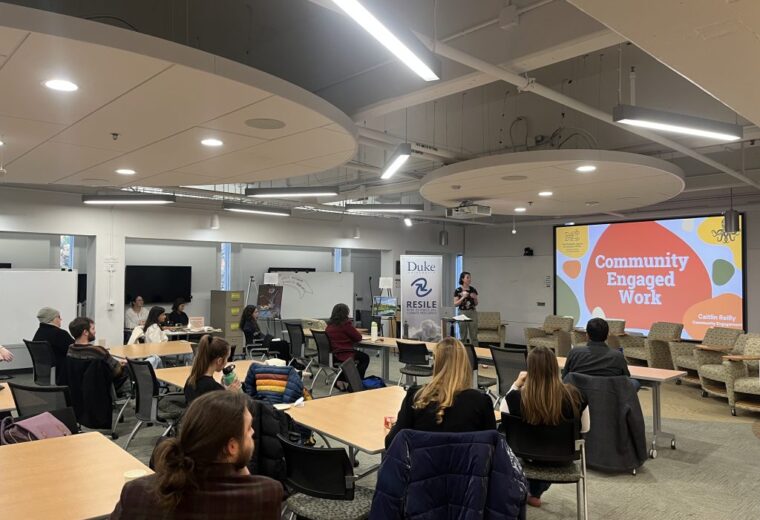
RESILIENT Voices Draws a Diverse Crowd
Students and faculty from all across Duke and the local community gathered to discuss climate resilience
We’re sorry—the news story you were looking for has been archived.
Please see the most recent stories below.

Students and faculty from all across Duke and the local community gathered to discuss climate resilience

Padilla was honored for his contributions to the field of metamaterials, including perfect absorbers and active devices.

Experts from around the world gathered at the first Advanced Multifunctional Metamaterials Workshop to shape the future of the field